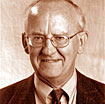Commentary on Psalm 46
This Reformation Sunday is a time to ask whether the church, and by this I mean the whole Christian Church on earth, needs to have a big rummage sale.
I’m not talking about a literal rummage sale where people bring used clothing, tools, and vehicles to sell and give the proceeds to the poor. I’m talking about a “metaphorical” rummage sale, which would mean getting rid of excess spending, excessive trappings and personnel and wasteful practices all around.
One student of the religious scene suggests that the Church needs to have such a rummage sale, call it a re-formation, every 500 years. The last such cleanup was set off in 1517, when a monk in the German university town of Wittenberg nailed 95 suggestions for improvement on the door of the church there. These statements said, essentially: our Church is in bad shape. We need to get rid of some of the junk. We need to have a big rummage sale.” And the cleanup got going and the whole world changed. This was the Reformation, which began almost 500 years ago, in 1517.
Just a couple of years ago now my wife Martha and I visited Germany. We had heard from a former student, now a pastor in Germany, that the protestant church there was planning for a big” rummage sale” and celebration for the year 2017 — that’s 500 years after Martin Luther nailed up those 95 suggestions on the church door. So we visited with our friend at the headquarters of the German Protestant Church (EKD) in Hannover. Her full-time job these years is to help get ready for the celebration in 2017.
In fact the German protestant church has called this the “Reformation Decade” which began in 2007. The symbol (which we saw all over Germany) is a huge poster of Luther — wearing headphones with a cord running down to an electronic device, symbolizing that the church has to get “plugged in” to the modern age. So we join believers in Germany and all over the world as we read Psalm 46 today, and as we sing the hymn based on that psalm, “A Mighty Fortress Is Our God.”
Psalm 46 divides into three sections, each developing the theme of God as “refuge and strength,” or, in a word, as Fortress. Each section ends with selah indicating a pause. The last two sections end with a refrain in verses 7 and 11; a similar refrain may have once concluded the first section, after verse 3.
God as a Fortress against the threats of nature (verses 1-3). The dominant theme of the psalm is trust in God, first sounded in verse 1, “God is our refuge and strength.” The same word refuge occurs in Psalm 104:18, referring to a place where small animals may find safety. In Isaiah 25:4 the same Hebrew word denotes a shelter from the rainstorm; in Isaiah 4:6 it is a refuge from the storm and rain.
If “refuge” refers to a place where one may find safety and security, “help” has a more active sense, identifying God as one who takes action to assist those in trouble. Verses 2 and 3 indicate that God’s people need not fear the worst that nature can hurl at them, whether it be earthquakes or floods. Because no matter what, God will be with them.
God as a Fortress against the threats of the nations (verses 4-7). This second stanza deals with attacks from hostile nations. God gives humans freedom, even the freedom to carry on wars. And how does God rescue people from such events? Through the men and women of armed services, through the United Nations, God works “to make wars cease” and bring about peace.
God and the stillness after a war (verses 8-9). After the roaring of the sea and the warring of the nations, the psalm portrays a time of quiet. The wars have come to an end. Programs of disarmament have been carried out and the battlefields have been cleared. A voice says “Be still and know that I am God.” The nations quit their battling and the earth stops its quaking. The psalm ends with the congregation joining in the refrain a final time: “The Lord of hosts is with us, the God of Jacob is our refuge.”
This doubled “with us” marks this as a psalm of trust. The same thing is expressed on an individual level in another famous Psalm of Trust: “Even though I walk through the darkest valley I will fear no evil, for you are with me” (Psalm 23).
Let’s be clear. These psalms are realistic. They do not promise that we as God’s people will be free from the ravages of nature or of war or of individual suffering. But they do promise that we will not have to go through these things alone. “The LORD of hosts is with us … ” and “for you are with me.” Both psalms have the same “with” language which bind believers to a loving God.
On the tower at the top of the castle church in Wittenberg, Germany, the words of Psalm 46 are printed in huge letters: EIN FESTE BURG IST UNSER GOTT (translated, “A MIGHTY FORTRESS IS OUR GOD.”)
Psalms 46 and its numerical half Psalm 23 are psalms to which believers always turn when the going is the toughest. Luther knew that when he wrote in the last stanza of his hymn:
Were they to take our house,
Goods, honor, child or spouse
Though life be wrenched away
They cannot win the day.
The Kingdom’s ours forever.
Remember the refrain, “The Lord of Hosts is with us.” No matter what deep and dark valleys you may have to go through this week, don’t be afraid. Because you can say to God, “I will fear no evil, for you are with me.” And that’s a promise you can count on.


October 26, 2014